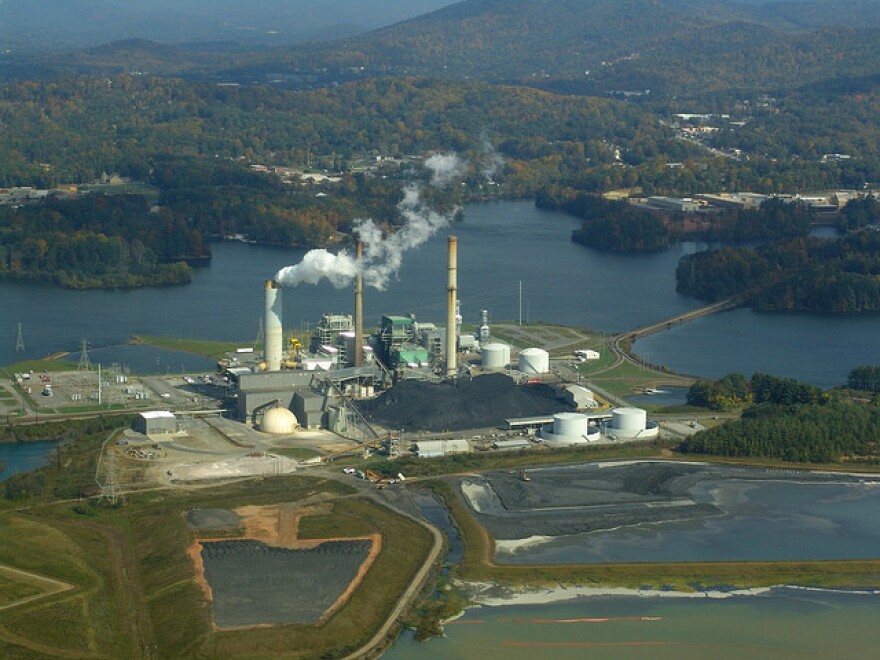Governor Roy Cooper and legislative leaders say they've reached a compromise on a comprehensive energy bill. In a joint news release, Cooper, Senate Leader Phil Berger and House Speaker Tim Moore said the legislation will provide a clean energy future while protecting consumers and businesses.
Among other things, the leaders say House Bill 951 will require the North Carolina Utilities Commission to follow the least-cost pathway to reducing carbon emissions 70% by 2030. It would also allow multi-year rate plans for utilities and performance-based incentives in rate-making.
The measure, which is expected to clear the Republican-controlled legislature next week, removes most of the prescriptive actions that House Republicans laid out in an earlier version of the bill that passed the chamber in June.
Bill Calls On Utilities Commission To Create Roadmap For Reducing Greenhouse Gas Emissions
Instead the new bill, largely negotiated between the Cooper administration and senators from both parties, directs the state Utilities Commission to come up with a roadmap by the end of 2022 on how to move toward goals of reducing greenhouse gas emissions that align with Cooper’s Clean Energy Plan.
That plan seeks to reduce carbon dioxide levels from energy producers by 70% compared to 2005 levels by 2030, and achieve zero-net CO2 emissions by 2050. The House plan would have contributed to a 62% reduction in power-sector greenhouse gas emissions by the end of the decade, according to a commission estimate.
The approved House bill had singled out which inefficient coal-fired plants operated by Duke Energy should be shuttered early and replaced with other alternate fuels. It also quantified solar power production expansion levels and told Duke to begin investigating where it could build a new, smaller “modular” nuclear facility.
Cooper and several environmental and manufacturing groups panned that bill, either for relying too much on natural gas, increasing customer rates dramatically or weakening the Utilities Commission's authority.
"After months of policy negotiations, we reached an agreement that will signal to businesses and families here now or considering a move here that North Carolina’s leaders are committed to pro-growth energy policies," Berger said about the new bill in a written statement.
Cooper said that the bipartisan bill "sets a clean energy course for North Carolina’s future" and that it will be beneficial for the economy, environment, and "pocketbooks of everyday North Carolinians."
The North Carolina Retail Merchants Association, which had been neutral on the House bill that passed in June, came out in support of the updated bill Friday. Duke Energy praised the efforts of state leaders.
Opposition From Some Economic, Environmental Groups
The contentious bill has also drawn opposition from some economic and environmental groups.
In a press release, the North Carolina Justice Center, an economic and social justice advocacy group, said they oppose the legislation "due to the harmful anticipated cost impacts it will have on people with low incomes." The center said the energy bill will "significantly increase electricity bills for all residential ratepayers."
Regional environmental and energy organization Appalachian Voices said the bill would be a financial boon for Duke Energy while having "crushing financial implications for families and businesses." The organization expressed concern that the bill contains "loopholes" that may allow the goal of 70% carbon emission reduction to be pushed back by several years.
WUNC's Brent Wolfe contributed to this report.






